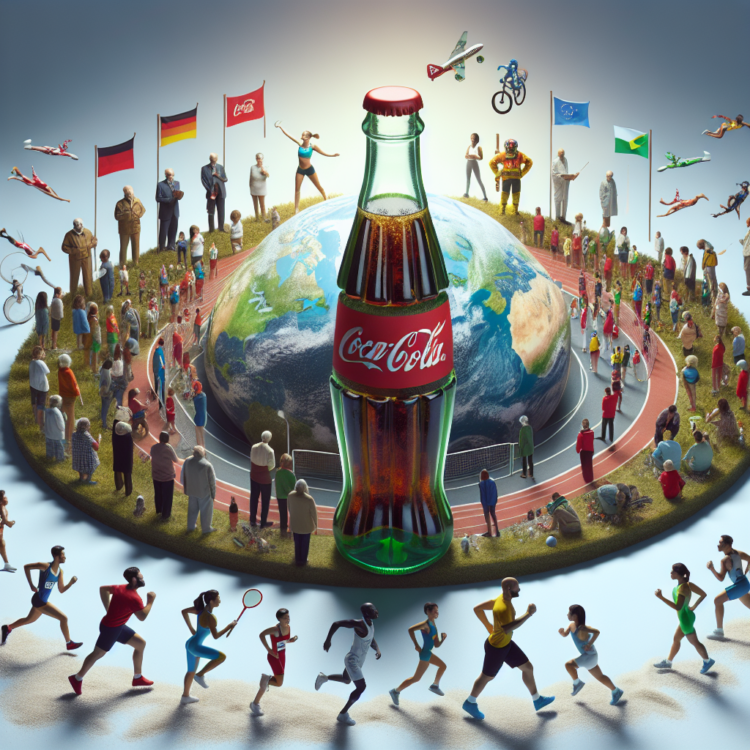The International Olympic Committee (IOC) should cut its ties with Coca Cola in the best interests of athletes, spectators, and the planet, urge Trish Cotter and Sandra Mullin of the international public health organisation, Vital Strategies, in an editorial to be published shortly in the open access journal BMJ Global Health.*
The International Olympic Committee (IOC) should cut its ties with Coca Cola in the best interests of athletes, spectators, and the planet, urge Trish Cotter and Sandra Mullin of the international public health organisation, Vital Strategies, in an editorial to be published shortly in the open access journal BMJ Global Health.*
The company’s sponsorship forces athletes to implicitly endorse unhealthy sugary drinks and provides Coca Cola with elite access to political and corporate leaders to exert its influence, insist the authors.
Coca Cola has sponsored the Olympic Games for almost 100 years, they note. And there’s a good reason for that, they say.
“High profile sporting event sponsorship is usually a highly effective marketing strategy. In 2022, The Coca Cola Company had 233 active sponsorship agreements worldwide across 21 sports. In fact, in 2023, Coca Cola had the most sports sponsorship of any other brand,” they point out.
But its largest active deal is with the IOC.
These deals not only enable brands to “leverage consumers’ emotional connection with sports’ greatest sporting moments…But sporting event sponsorship also lures individual athletes into tacit endorsements that many would otherwise choose to avoid,” highlight the authors.
And there’s no doubting the power of sport, they say, citing the example of footballer Cristiano Ronaldo. He set aside two bottles of Coca Cola at a press conference for the European football championships in 2021, despite Coca Cola being an official event sponsor, and held up instead a bottle of his preferred water.
The gesture “was seen by the public as a rebuke to the idea that Coca Cola is a benign drink embraced by athletes at the top of their game,” write the authors. With just a few seconds of footage, US$4 billion was reportedly wiped off the soda giant’s market value, they add.
Despite the evidence of sugary drinks’ contribution to obesity, type 2 diabetes, high blood pressure, and heart disease, and the IOC’s mission to champion athletes’ health, Coca Cola remains a top-tier sponsor of the Olympic Games and retains a contract through at least 2032, note the authors.
The brand has much to gain, they suggest. More than 3 billion people worldwide tuned into broadcast coverage of the 2020 Tokyo Games, and 28 billion video views took place on broadcasters’ digital platforms.
“With a viewership this size, advertising during the Olympic Games is a coveted opportunity for companies to feature their products, however detrimental to consumers,” say the authors.
Sponsorship also gives the company’s senior executives ready access to the world’s elite athletes and corporate and political leaders, they point out.
“The millions poured into this agreement get Coca Cola far more than a seat at the opening ceremony. The company has bought entry to various events where relationships are forged behind the closed doors of corporate privilege,” they write.
Such a strategy “culminates in a gold medal opportunity to “sportswash” an unhealthy product,” they suggest, adding that the packaging and distribution processes contribute hugely to plastic pollution, greenhouse gas emissions, and water insecurity in poor communities as well.
“By continuing its association with Coca Cola, the Olympic movement risks being complicit in intensifying a global epidemic of poor nutrition, environmental degradation, and climate change,” the authors insist.
And major international public health bodies—the World Health Organization and the World Obesity Federation among them—also need to up their game, say the authors. Their advocacy for a reduction in sugary drink consumption must include a better understanding of the unique role of sports marketing.
“The IOC must acknowledge that Coca Cola’s continued association with the Olympics contradicts the fundamental values of this global event and puts the Games at risk of being complicit in our nutritional and environmental crises,” write the authors.
“By severing ties with Coca Cola, the IOC can send a powerful message that the Olympics stand for integrity, health and sustainability. Let’s implore the IOC to act swiftly in the best interests of athletes, spectators, and the planet,” they conclude.
Journal
BMJ Global Health
Method of Research
Commentary/editorial
Subject of Research
People
Article Title
The Olympic Game’s up: It’s time for the IOC to stop promoting sugary drinks
Article Publication Date
6-Aug-2024
COI Statement
None declared




